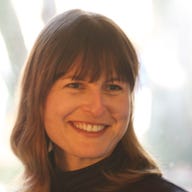Rolling Stones keyboardist Chuck Leavell on smart growth

 WASHINGTON –- Last week, Rolling Stones keyboardist, Mother Nature Network co-founder and conservationist Chuck Leavell was in Washington to talk about his new book, Growing a Better America: Smart, Strong and Sustainable.
WASHINGTON –- Last week, Rolling Stones keyboardist, Mother Nature Network co-founder and conservationist Chuck Leavell was in Washington to talk about his new book, Growing a Better America: Smart, Strong and Sustainable.
Leavell and co-author J. Marshall Craig address topics including transportation, home building, alternative energy, renovation of our iconic buildings, community design and model growth.
“With the incredible pressures on our natural lands and natural resources,” Leavell said last week at the National Press Club, “it is important at this juncture that we make careful and intelligent decisions concerning how America is going to grow.”
Leavell, who said he has a “deep, abiding respect” for the land,” said there is an “invisible forest health crisis” today—the loss of forest and agricultural lands to growth and development. He noted:
- His home state of Georgia has been losing an average 80 to 100 acres of land to development every day, half of which is to impervious surfaces.
- The United States loses 2,500 acres a day to growth an development, year after year.
- We have 310 million people in the U.S. and are projected to have 400 million around 2040, so this is a tremendous amount of pressure on our natural lands.
- We have 3 million miles of paved roads and 1.4 million miles unpaved roads; we have some 62 million vehicles driving on those roads; we have 276 cities with over 100,000 in population; and 105,000-120,000 households. There are 80,000 planes flying our skies every day. It’s common knowledge that global climate change is a reality.
- By 2030, it’s estimated that Glacier National Park will no longer have any glaciers on it.
 “I’m not anti-growth,” Leavell said. “We’re going to have the growth whether we like it or not. The question becomes, is the growth we’re doing going to be rapid, rampant and reckless, or is it going to be smart, strong and sustainable? We only have one environment, and it’s ours to care for or neglect, to abuse or even deplete.”
“I’m not anti-growth,” Leavell said. “We’re going to have the growth whether we like it or not. The question becomes, is the growth we’re doing going to be rapid, rampant and reckless, or is it going to be smart, strong and sustainable? We only have one environment, and it’s ours to care for or neglect, to abuse or even deplete.”
Leavell researched a number of smart growth models, including Serenbe, a 1,000-acre sustainable community in the Chattahoochee Hills, south of Atlanta.
“Steve Nygren bought a country getaway for his family and begin to spend time there on the weekends,” Leavell said. “He ended up with 100 or so acres. One day he was out jogging, and lo and behold, the bulldozers were there. He thought, ‘I can't stop it, but maybe I can change it.’ He went to his neighbors, and they started having town meetings and a remarkable thing happened.”
The development, an urban model promoting walkability and community living, calls for preservation of a minimum of 70 percent of the acreage. There are art galleries, original shops and restaurant ,stables, hiking and biking trails, organic farming and farmers markets. “It’s preserving natural lands and promoting a healthy lifestyle,” Leavell said.
He mentioned a second model community, Poplar Grove, outside Charleston, S.C. Through a partnership with Ducks Unlimited, more than 3,000 acres of land at Poplar Grove (half of the acreage) has been protected by a conservation easement. The energy efficient homes in the development are surrounded by marshland, woods, canals, ponds and nature trails.
“This is the right way to do it,” Leavell said. “We can do it this way rather than just throwing the houses up and not giving it much thought.”
 The bottom line, he said, is that “it’s all about good stewardship. We talk about stewardship of our lands, but stewardship applies to our neighborhoods, our corporations, our communities. And stewardship is hard work. This stuff doesn’t just happen.”
The bottom line, he said, is that “it’s all about good stewardship. We talk about stewardship of our lands, but stewardship applies to our neighborhoods, our corporations, our communities. And stewardship is hard work. This stuff doesn’t just happen.”
Leavell said growing up, his father used to say, “There’s an art to everything.”
“Boy, oh boy, how true that is,” Leavell said. “Whatever your vocation in life, there’s an art in it. And certainly there’s an art to being a good steward. The canvas we have to perform our art on is our own backyards It is indeed the landscape. My message is: Let’s be careful how we mix the colors in that palate; whatever we paint is something we’re all going to be responsible for. I want to push to get this done. This is America; we can do this.”
Read my Q&A with Leavell: Rolling Stones' keyboardist gets his satisfaction on the farm
This post was originally published on Smartplanet.com